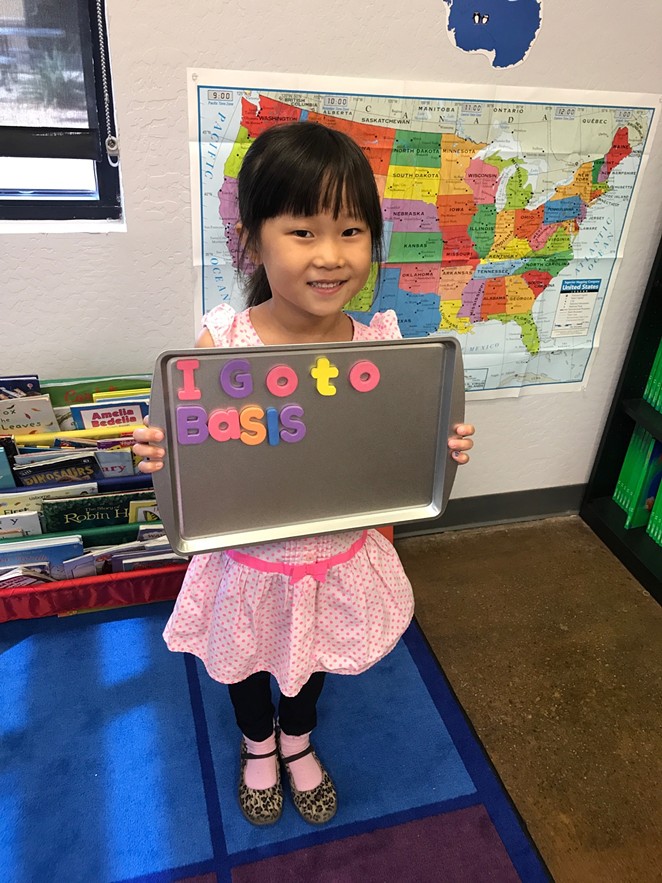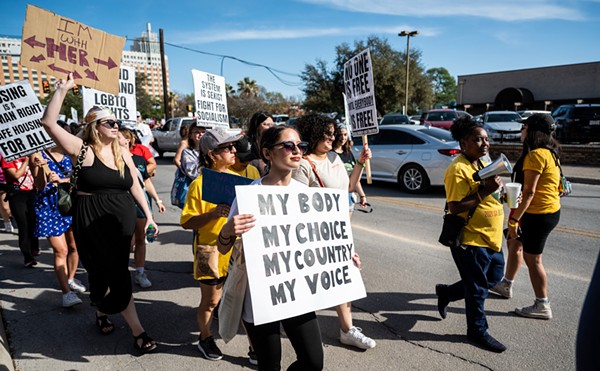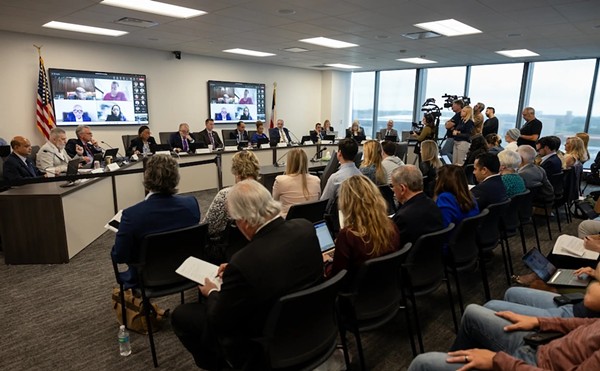Academic Independence
From strong teacher guidance to independent learning
Grade 3: Students in grades 1–3 require additional support from teachers as they adjust to learning brand-new concepts and basic study skills. Oftentimes, teachers will guide students through an assignment step-by-step. However, by the time they finish grade 3, students should be able to complete small assignments on their own.
Grade 4: In addition to experiencing an increased workload, students in grade 4 are expected to be more independent in their learning. They will also make the leap from completing daily assignments to working on long-term projects. For instance, students may be assigned a project for which they have to research, plan, and revise their own work with minimal guidance from the teacher.
How we help: Students in grades 1–3 at BASIS Charter Schools benefit from a co-teaching model, which places one Subject Expert Teacher, who is a content expert, and one Learning Expert Teacher, who is a pedagogy specialist, in each classroom. While the Subject Expert Teacher focuses on class lessons, the Learning Expert Teacher helps students master essential skills like organization, critical thinking, and time management. That way, when students enter grade 4 and are expected to work independently, they already have the tools they need to succeed.
Critical Thinking
From learning facts to communicating ideas
Grade 3: After mastering the basics in earlier grades, students in grade 3 begin to look beyond what they can simply observe. For example, in reading / language arts, students are able to define and infer the meaning of complex words and read longer works. As such, they are encouraged to develop their own points of view about books and the characters in them, and discuss those points of view with the class.
Grade 4: Learning how to think critically marks a major milestone for students. Rather than working to simply understand the material, they are taught how to discern meaning and draw conclusions from it. For example, in English, students begin to analyze different works, thinking about character motivation and deeper themes revealed in the text, and then relating it to their own lives.
How we help: Students in grades 1–3 at BASIS Charter Schools take a Literacy Enrichment course, which allows them to master advanced phonics skills and understand increasingly complex language. At BASIS San Antonio Northeast, we extended this concept to include a Science Literacy Enrichment course, which focuses on the comprehension of scientific texts, interpreting data and graphs, and drawing conclusions from that information.
Interdisciplinary Connections
From making simple connections to understanding complex concepts
Grade 3: By the time students reach grade 3, they have already started to develop big-picture thinking. This paves the way for them to understand how different subjects are connected to each other and how skills from one subject can be applied to another subject.
Grade 4: Students in grade 4 take this to the next level by using skills learned in multiple courses to solve problems and understand complex concepts across the academic disciplines. For example, when writing a social studies paper, students can use sources related to other subjects (artwork, novels, biographies, etc.) to provide support for their argument. Likewise, students can apply math and science concepts to engineering projects.
How we help: At BASIS Charter Schools, making interdisciplinary connections is an integral part of our curriculum, and we introduce students to it early. In grades 1–3, students take a course called Connections, during which they learn how to combine knowledge from different classes to complete a variety of cross-curricular projects and find solutions to real-world problems.
Communication
From group work to collaborative problem-solving
Grade 3: In the earlier primary school grades, students learn the basics of how to interact while working in groups, including sharing, listening, and taking turns. In grade 3, they work together to solve problems and begin to encounter ideas that are different from their own.
Grade 4: As students continue to progress in collaborative learning, they increase their understanding of different perspectives. In class, they are taught how to analyze issues from multiple perspectives and argue multiple viewpoints in a respectful, considerate manner. This allows them to become flexible thinkers and strong problem-solvers.
How we help: BASIS Charter Schools foster a learning community that values and promotes respect, accountability, and perseverance. Teachers create a supportive classroom environment in which students feel comfortable asking questions like “why” or “what if” and speaking up in class discussions if their ideas are different from other ones.
Although the transition from grade 3 to grade 4 is only one of many that students will make throughout their academic career, we provide the right amount of preparation to make all their academic transitions seamless.
BASIS Charter Schools are open enrollment, tuition-free public charter schools offering a STEM-infused liberal arts curriculum that empowers students to innovate, create, and lead.
Whether students attend school on campus or through distance learning, BASIS San Antonio Northeast is ready for the 2020–21 school year. We are currently enrolling grades K–5 and will grow to serve grades K–12. For more information, please visit BASISSanAntonioNortheast.org.



















